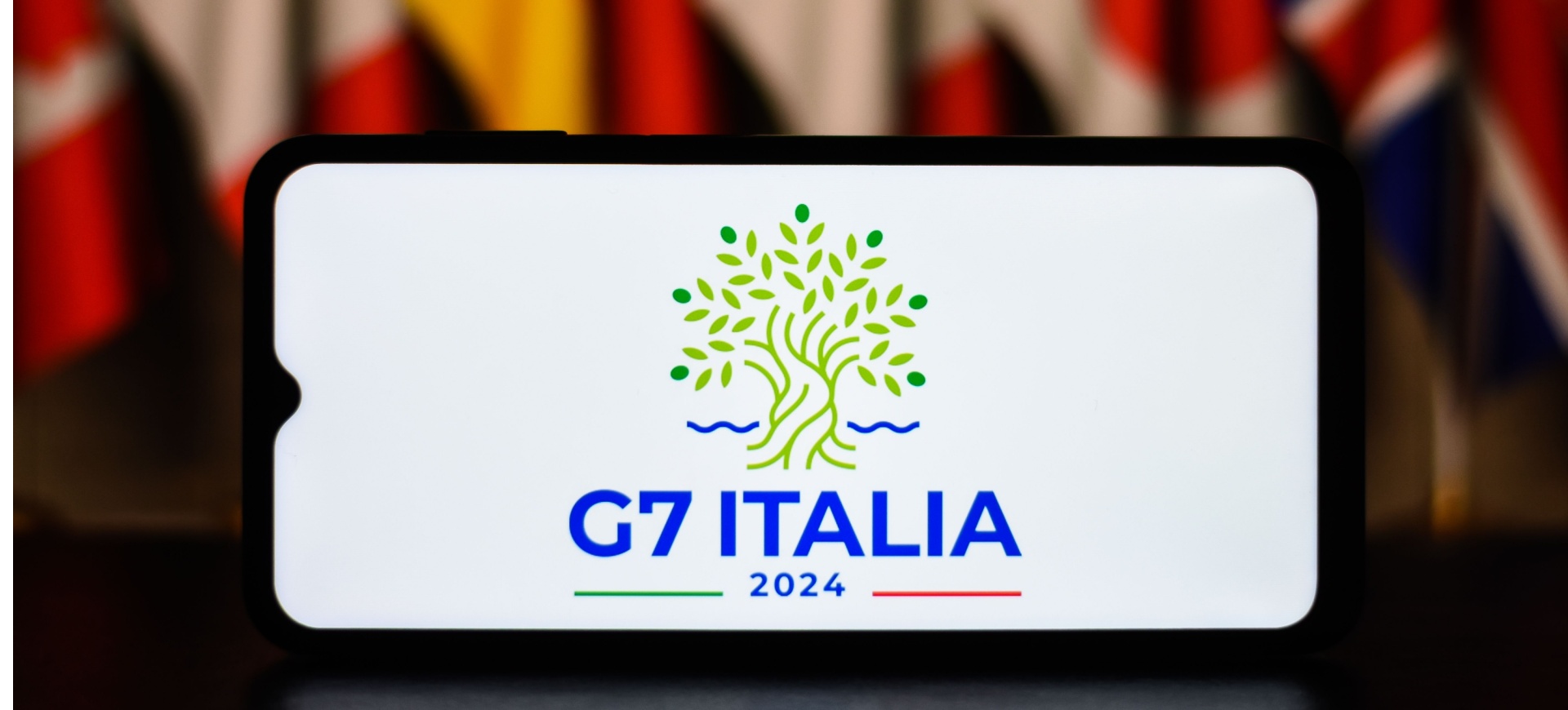Promising prospects for the G7’s Apulia Summit
At their Apulia Summit, G7 leaders are tasked with a very broad and demanding agenda, and cooperation with and among relevant organisations, trust in multilateralism, and the G7’s relationship with the major growing democracies, the G20 and civil society are key to a strong performance
The G7’s 50th annual summit, taking place in Apulia, Italy, on 13–15 June 2024, confronts a wide array of interconnected crises, starting with Russia’s war against Ukraine, conflicts in the Middle East, climate, energy, food and health insecurity, declining development, debt sustainability and democracy, especially in Africa and the Indo-Pacific region, and newer challenges from migration and refugees and artificial intelligence.
In response, G7 leaders will build on the results of their special summits on 24 February and 14 April, and their ministers’ G7 meetings, to advance the G7’s distinctive foundational mission of protecting and promoting open democracy and individual liberty at home and abroad.
They are led by the first female and youngest Italian prime minister Giorgia Meloni, at her second annual summit and her first as host. She is joined by Canadian prime minister Justin Trudeau and French president Emmanuel Macron at their ninth, US president Joe Biden and German chancellor Olaf Scholz at their fourth, Japanese prime minister Fumio Kishida at his third, and UK prime minister Rishi Sunak at his second. The EU Commission’s President Ursula von der Leyen and the EU Council’s President Charles Michel are at their fifth. They will be reinforced by several invited guest leaders, including Pope Francis, directly relevant to their work.
Summit priorities
Security, their first priority, begins with the deadly conflicts in Europe, the Middle East and the Gulf, and military confrontations in the Indo-Pacific region. They arise from Russia’s invasion of Ukraine on 24 February 2022, the Hamas attack on Israel on 7 October 2023 and Israel’s subsequent attacks in Gaza, Iran’s attack on Israel on 13 April, a nuclear-armed North Korea threatening its neighbours, and a militarising China preparing to seize Taiwan by force. Security includes countering crime and corruption and defending democracy and human rights against the growing disinformation, polarisation and interference in democratic elections enabled by digital communication and AI.
The second priority is restoring development in poor countries, reducing their growing debts, propelling progress towards the United Nations Sustainable Development Goals and partnering with Africa in an equal way.
The third priority of migration and refugees covers people displaced within their own countries and driven from poor to rich countries by conflict, climate change and poverty, those who traffic them, and those migrating legally to provide their new countries with the workers and taxpayers those countries need.
The fourth priority is the climate-energy nexus, including climate change, biodiversity loss and pollution from plastics, chemicals and other human waste. Human activity is now relentlessly driving the post-industrial global temperature rise beyond its liveable limits of 1.5°C, fuelling ever more extreme weather events and approaching critical, irreversible tipping points. This requires fostering clean and renewable energy sources and phasing out fossil fuel subsidies and coal.
Food security, the fifth priority, centres on the immediate need to feed the rising number of famine-stricken people. It extends to crafting exports and imports – amid inflation, sanctions and environmental, social and governance concerns – to provide more affordable, accessible, appropriate and healthy food.
AI, the sixth priority, includes developing rules for its governance that foster its innovative potential, while ensuring privacy, safety, intellectual property protection and the integrity of the information it disseminates.
The summit’s built-in agenda starts with the economy and finance, especially strengthening non-inflationary, shared economic growth through fiscal, monetary and exchange rate policy, and strengthening financial stability through better financial regulation and supervision. It includes fostering economic security and resilience by diversifying supply chains through trade, investment and domestic subsidies. Travel, tourism and culture are also important, for Italy and many countries, as they foster economic development, women and youth empowerment, ecological enhancement, intercultural understanding, and peace.
Emphasis on health
Health requires controlling Covid-19 as new variants arise, preventing, preparing and responding to new pandemics, and addressing non-communicable diseases, zoonoses, antimicrobial resistance and synthetic drugs. It needs a new emphasis on mental health, as dementia spreads among the rapidly ageing populations in most G7 members, and as the links between health and climate change intensify. Supporting social well-being also includes fostering better jobs and labour standards, gender equality, education and human capital, and care for children, youth and the elderly.
Strengthening the G7-centred system of global governance requires improving implementation of G7 commitments, cooperation with and among UN organisations, trust in multilateralism, and the G7’s relationship with the major growing democracies, the G20 and civil society.
On this very broad and demanding agenda, the Apulia Summit promises to produce a strong performance. It will provide very strong support for Ukraine and the other European democracies confronting Russia’s aggression, try to foster human security and peace throughout the Middle East, and protect democracies everywhere. It will make substantial progress on climate change, the environment, energy, and Africa and solid advances on development, migration, food security, AI and the economy.












